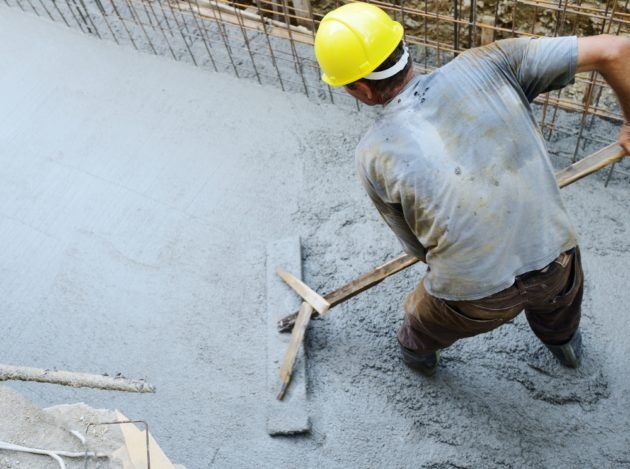Comprehensive Guide to Concrete: From Installation to Finishing Touches
Comprehensive Guide to Concrete: From Installation to Finishing Touches
Blog Article
Unveiling the Eco-Friendly Advantages of Utilizing Recycled Concrete in Sustainable Building And Construction Practices
In the world of sustainable construction practices, the usage of recycled concrete stands as an essential yet usually undervalued resource. Past its conventional applications, recycled concrete offers a myriad of environmentally friendly benefits that expand much beyond the confines of traditional construction products.
Ecological Advantages
Undoubtedly, among one of the most significant advantages of utilizing recycled concrete is its favorable influence on the atmosphere. By incorporating recycled concrete right into building and construction practices, there is a considerable decrease in the requirement for new resources, resulting in conservation of natural deposits. This process aids in preserving accumulations, water, and energy that would have been made use of in generating new concrete. Additionally, using recycled concrete decreases the quantity of waste being sent out to land fills, thus reducing ecological contamination and easing the strain on landfill capacities.

Furthermore, the manufacturing of standard concrete is a significant source of carbon emissions due to the energy-intensive procedure of cement production. In contrast, recycled concrete has a reduced carbon impact as it lowers the need for brand-new concrete manufacturing. This reduction in carbon discharges adds to mitigating climate change and sustains lasting building methods. In general, the ecological benefits of making use of recycled concrete are substantial and play a critical function in promoting eco-friendly construction techniques.
Cost-Efficiency
Accomplishing cost-efficiency is a critical consideration when evaluating the utilization of recycled concrete in building and construction jobs. Among the vital advantages of making use of recycled concrete is its cost-effectiveness compared to typical concrete. The manufacturing of recycled concrete entails less energy and resources as it makes use of existing materials, lowering the overall task prices substantially. In addition, the schedule of recycled concrete in your area can further reduce transport expenses, making it a more cost-effective selection for construction tasks.
Furthermore, the usage of recycled concrete can cause cost savings in land fill prices by drawing away concrete waste from disposal sites. This not only decreases the environmental impact yet also removes the prices related to waste elimination. The resilience and performance of recycled concrete are equivalent to standard concrete, ensuring that cost financial savings do not endanger the top quality of the building.
Toughness and Toughness
Recycled concrete offers equivalent, if not remarkable, longevity and stamina properties to traditional concrete - Concrete. With innovations in handling methods and high quality control, recycled concrete can fulfill or go beyond the efficiency standards of conventional concrete.

Waste Reduction
Reliable waste reduction practices play a critical duty in the lasting utilization of sources within the building and construction sector. When it comes to making use of recycled concrete, waste reduction is a key benefit that adds considerably to ecological conservation. Typical building and construction methods commonly produce significant quantities of waste, specifically in the form of concrete debris from demolition websites. By integrating recycled concrete into building tasks, this waste is repurposed and drawn away from garbage dumps, lowering click reference the general ecological impact of building tasks.
Recycled concrete not just helps in minimizing the amount of waste that ends up in land fills yet additionally preserves natural deposits by decreasing the demand for new accumulated materials. This procedure of waste reduction advertises a round economy within the building and construction field, where materials are recycled and recycled to create an extra sustainable market. Additionally, making use of recycled concrete can result in set you back financial savings for building projects, as it is useful link frequently more affordable than sourcing and carrying new products. In verdict, waste reduction through the application of recycled concrete is an important component of lasting building and construction techniques that benefits both the building and the setting market all at once.
Energy Preservation
Power conservation is a crucial facet of sustainable building and construction techniques, aiming to lower the overall power usage related to structure procedures and products production. When it comes to using recycled concrete in building, significant power cost savings are attained contrasted to conventional concrete production. The process of generating recycled concrete includes recycling and crushing existing concrete materials, which eats much less energy than mining, processing, and delivering resources for brand-new concrete production. Additionally, making use of recycled concrete can help lower the demand for virgin accumulation, further lowering the Related Site energy-intensive removal and processing of natural deposits.
Verdict
In conclusion, the use of recycled concrete in sustainable building and construction methods supplies countless environmental benefits, cost-efficiency, durability, strength, waste reduction, and energy preservation. By including recycled concrete into building jobs, we can contribute to a more sustainable and environmentally pleasant future. It is necessary for the construction industry to focus on the usage of recycled materials to assist lower the ecological impact of construction activities.
One of the essential benefits of using recycled concrete is its cost-effectiveness contrasted to traditional concrete.Moreover, the usage of recycled concrete can lead to savings in garbage dump costs by diverting concrete waste from disposal sites. The durability and efficiency of recycled concrete are comparable to standard concrete, making certain that price savings do not endanger the quality of the building and construction.

Report this page